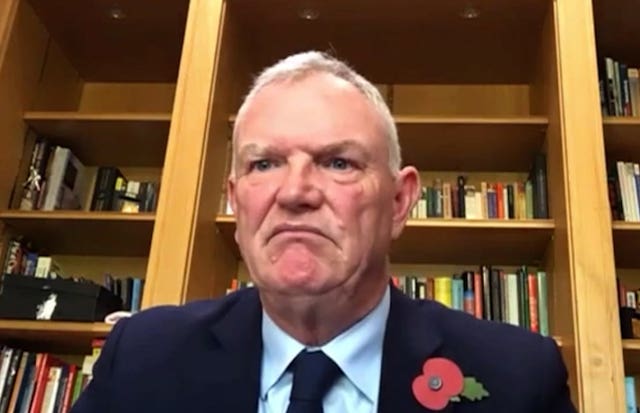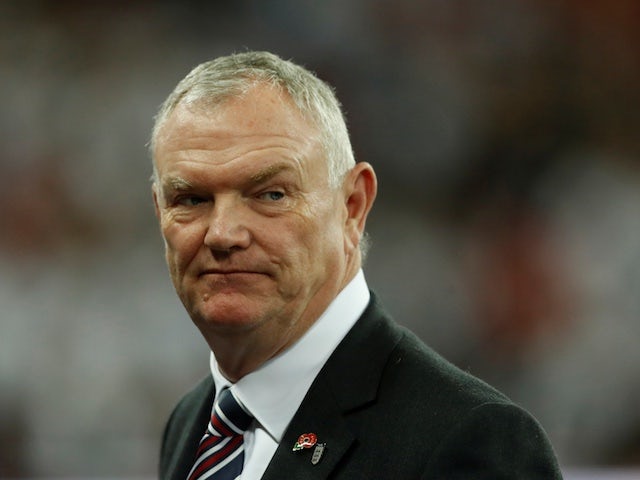Greg Clarke has stepped down from his role as a FIFA vice-president and will no longer represent UEFA on the world governing body’s ruling council.
Clarke, 63, resigned as Football Association chairman on Tuesday evening after making a series of offensive remarks during an appearance before a parliamentary committee.
European football’s governing body confirmed that its president Aleksander Ceferin had now spoken to Clarke and agreed with Clarke’s suggestion he stand down as a UEFA representative on the FIFA Council.
“Following a telephone call this morning between the UEFA president and Greg Clarke, they agreed with Greg Clarke’s proposal that he should step down with immediate effect from his position as a UEFA representative on the FIFA Council,” UEFA said.
Through Clarke’s decision, he has also rescinded his position as a FIFA vice-president.
Under Article 5 of the regulations governing the implementation of UEFA statutes, UEFA’s executive committee can elect an interim replacement representative, probably from one of the British associations, to serve on the FIFA Council until the next UEFA Congress in March.
The interim appointment will not become a vice-president though. Any interim appointment must be approved by UEFA’s ExCo which next meets on December 3.
However, the permanent replacement to Clarke – who will be a candidate put forward by the British associations at the 2021 Congress – would become a FIFA vice-president.
It could mean the English FA loses a hugely influential position within the game’s world governing body, because the next vice-president could just as easily be a Northern Irish, Scottish or Welsh representative.

A statement from FIFA read: “We confirm having received Mr Greg Clarke’s resignation as a member of the FIFA Council. We have accepted his resignation and, in the circumstances, consider that he took the right decision in the interests of FIFA and of football.
“We would like to thank Greg for his work in the past for FIFA and on a personal level wish him all the best for the future.”
The FA appointed Peter McCormick as interim chairman following Clarke’s departure, and its chief executive Mark Bullingham said on Wednesday it hopes to appoint a new chair by the end of March.
Paul Elliott, the chairman of the FA’s inclusion advisory board, and Bobby Barnes, the deputy chief executive of the Professional Footballers’ Association, have both been mooted as strong contenders.

The FA’s head of women’s football Baroness Sue Campbell has also been reported as a contender for the position.
Clarke caused particular offence by the use of the word “coloured” in one of his answers to MPs on the Digital, Culture, Media and Sport (DCMS) committee.
He then also suggested people from different ethnic groups had “different career interests”, highlighting that there were more South Asians in the FA’s IT department than people from an Afro-Caribbean background.
He also appeared to suggest someone’s sexuality was a “life choice” and recounted an anecdote in which he says he was told girls did not like having footballs kicked at them.







